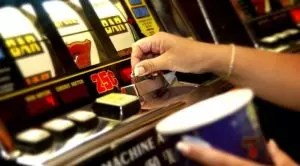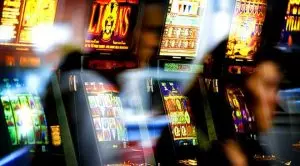 According to new research, the number of Australian residents who have participated in gambling declined by over 2.6 million indiiduals during the Covid-19 pandemic in comparison to a year ago.
According to new research, the number of Australian residents who have participated in gambling declined by over 2.6 million indiiduals during the Covid-19 pandemic in comparison to a year ago.
The new data provided by the Australian National University showed that the forced shutdown of clubs and pubs at the beginning of 2020 significantly minimised access to gambling services and the overall rate decline from the almost 66% from the gambling participation rates before the pandemic to approximately 53%.
At the time when venues resumed operations, the gambling participation rates increased, also because of an increase registered in online gambling, but it still stayed considerably lower than the levels before the pandemic, with the figure getting bigger to almost 59% by November.
According to the results of the research, the number of Australians who took part in a number of gambling channels in the period between April 2019 and May 2020 significantly declined. Data has shown that 2.7 million fewer adults purchasing raffle tickets, 1.6 million fewer people of age playing so-called pokies, or gaming terminals available at various venues, and 1.7 million fewer adults who played lottery games.
A Reduction in Risk-Taking Behaviours of Australian Gamblers Registered
 Nicholas Biddle, lead researcher professor, told the local media NCA NewsWire that when it comes to the types of gambling that had changed the most, it is pretty much an access issue.
Nicholas Biddle, lead researcher professor, told the local media NCA NewsWire that when it comes to the types of gambling that had changed the most, it is pretty much an access issue.
The research also found Australian adults were drinking and smoking less during the lockdown period, too. Professor Biddle further noted that a reduction in a range of what the researchers described as risk-taking behaviours. Besides, he said that the researchers found a decline in smoking, alcohol consumption and in gambling participation rates.
Panic buying led to an increase in alcohol sales, the research found. Professor Biddle revealed that the survey found a trend of people purchasing more alcohol during the coronavirus lockdown period in Australia. This does not necessarily mean they were consuming it, so it was considered more of a part of so-called hoarding behaviour as some people thought that local liquor stores would have been subjected to closures.
As explained by Professor Biddle, extensive information regarding public health would help the authorities and local regulatory bodies make sure gambling addiction is prevented as well as possible. Furthermore, using up-to-date data would help watchdogs target people who are considered to be most at risk, including people who usually focus on getting short-term rewards rather than long-term rewards.
Despite Australians were found to have gambled considerably less over the lockdown that has been aimed at reducing the further spread of the coronavirus pandemic, previous data showed that online gambling was actually on the rise. At the time when local adults were not allowed to go out there and use the land-based gambling services in the country, many of them shifted their focus on online alteratives.
- Author


